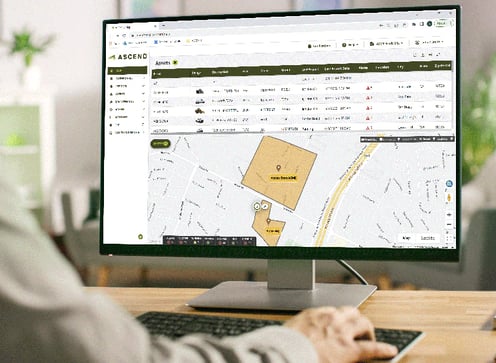Simplify Your Role as a Fleet Manager: Free Up Your Time for Strategic Planning to Cut Costs and Maximize Efficiency! Thanks to telematics, fleet managers can now effortlessly access a goldmine of information, turning data into a valuable asset for smarter decision-making!
But data in and of itself holds little value. To maximize fleet productivity and profitability, what managers really need is the right data from each of the vehicles and assets in their fleets—the data that has the potential to provide their team with actionable intelligence and insights.
Explore these five essential principles every fleet manager should master for intelligent use of telematics data, ensuring maximum productivity for your fleet.
1. Check before you expect! Just like we've mentioned in our other blogs, you can't improve what you don't measure. But measuring is just the start. To really boost your key metrics, you've got to create solid plans, implement better processes, and offer rewards to encourage the driver behavior changes that drive positive results.
2. Choose the Data That Matters: Figure out what information is crucial for managing your business. With a telematics system, there's a ton of data out there, so it's important to have a plan for zeroing in on the data that really makes a difference.
 Get Clear on Your Business Needs: What questions are key for your business? Identify the metrics to track those questions. How will you collect, organize, report, and share that data? Establish your starting points and goals for each metric to stay on track.
Get Clear on Your Business Needs: What questions are key for your business? Identify the metrics to track those questions. How will you collect, organize, report, and share that data? Establish your starting points and goals for each metric to stay on track.
3. Training Powers Success! To boost fleet productivity, everyone involved, from drivers to operators, needs the right motivation and knowledge for change. So, any new plan should come with training and implementation strategies. Use coaches, materials, videos, and more to provide the knowledge, and throw in incentives and rewards for that extra push towards positive change
When it comes to using the telematics data platform, your vendor should be there to help with the training you and your team need. Whether they provide it directly or offer guidance, make sure everyone gets up to speed hassle-free.
4. Don’t overreact to data. Think of your company's data like a novel, not a quick story. If you spot a driver logging extra hours or a piece of equipment sitting idle, don't rush into action without digging deeper. Understand the 'why' before making any quick changes. Let fleet data guide you, not push you into hasty decisions you might regret later.
5. Roll with the Changes: Just like your fleet evolves, so does your data. As your fleet grows and equipment comes and goes, your data needs will shift. To keep your fleet at its most productive, make sure you've got a telematics system that grows with you. It should adapt to your fleet's dynamic nature, collect and organize crucial data, and offer a fleet management dashboard that gives you a clear view of everything in one place.
Transform Your Fleet Management Game
Being a fleet manager is not just about getting the best out of each vehicle and asset – it's also about tapping into the power of your fleet data. The right way to handle data and a good telematics solution can simplify your job. More importantly, they can empower you to manage your operations with greater efficiency and strategy.
Ready to up your fleet manager game? Sign up for a free demo and experience the benefits firsthand.

